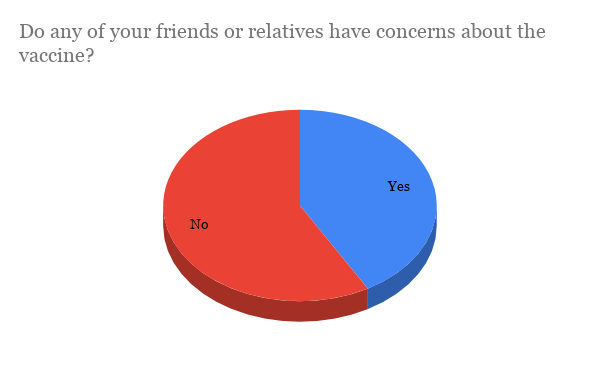Photo provided by Google.
The COVID-19 pandemic has affected the entire world. For the last 10 months, everyone has been sitting at home hoping for some miracle to end this catastrophe. This miracle is the COVID-19 vaccine. The vaccine is out and has already been given out to 1.3 million people. This is a phenomenal event and the first group of people that received the vaccine are making history.
Companies like Pfizer and Moderna have come out with the vaccines. The Pfizer and Moderna vaccine both have a few factors that differentiate them. The Pfizer vaccine states that a person must be 16 or older to receive the vaccine while the Moderna vaccine says that a person must be 18 or older. Right now frontline workers are being given the vaccine but they don’t get to choose what vaccine they will receive. The Pfizer vaccine’s effectiveness is 95% and Moderna’s is 94.1% effective. The Pfizer vaccine has been approved by the CDC for the public to take it, but in the end, we need both to succeed.
The Hatchet surveyed 127 WHS students about whether they would take the vaccine or not, and here are the results: 50% of people said yes, they would take the vaccine; 22.2% said no, they would not take the vaccine; and 25.4% of people said maybe or that they were unsure if they would take it or not. The remaining percentage of people said that they would take the vaccine later on after seeing its long term effects. Of the people who said they would not take the vaccine, the majority stated that they didn’t trust the vaccine no matter what and some said they felt as though building a stronger immune system would help more. A small group of people said that they would never take the vaccine because they see it as a potential threat to their health. One participant said they would never take the vaccine “because I don’t know what’s in it and I don’t know if it’s gonna work or make stuff worse.”

The survey also asked if students thought everyone should be required to take the vaccine. This is where the most intense controversy began. There was a mix of different responses. However, some people were more specific and said that if the CDC was sure that this would help prevent COVID-19 then they think it should be required. Of course, this might take years to come to the final conclusion that it does in fact prevent you from getting COVID. One participant explained their reasoning: “Everyone has control over their own bodies. Although a certain action may positively or negatively impact society as a whole, it is each person’s choice to get a vaccination or not.” Several people had similar answers and used the phrase “their body their choice.” However, one responder had the opposite point of view and was worried that “people won’t take it. At this point, people are dying anyway, so hypothetically if the vaccine killed you, you were probably going to die by COVID anyway, I mean what’s the alternative to not taking it? Going out and dying or staying inside forever?” Undoubtedly, our school’s students are divided when it comes to the COVID vaccine. The pandemic could slow down and come to an end, or it might drag out for years to come. Careful thinking and research can help individuals make the decision to get vaccinated or not. For now, we can sit back and witness history happening while also staying safe.
Prisha is in 10th grade and she grew up in Fremont, California. This is her first year at the paper and she is excited to write. She is interested in writing about global affairs, racism, and poverty. Prisha’s hobbies include reading novels, writing short stories, and drawing. In the future, Prisha is considering a career in business or global affairs where she can study current issues and talk about them and try to spread awareness.

